KYIV—Protests are banned under martial law here, as large crowds make an inviting target for Russian missiles. But that did not stop Ukrainians from coming out by the thousands in major cities last week—the largest demonstrations since the start of Russia’s full-scale invasion in 2022—to protest a bill that threatens the very existence of Ukraine’s independent anti-corruption agencies.
Out on the streets, amid the sound of honking car horns, the national anthem, and the scratchy voices of megaphones shouting “Corruption kills,” a diverse group of people gathered: students, families with young children, dogs wearing signs reading “Have you lost your mind?”, war veterans with prosthetics and in wheelchairs, and elderly citizens united to stop the government’s attack on anti-corruption bodies.
On Thursday, lawmaker Mariana Bezuhla, one of the 263 members of parliament who voted for the law, made an appearance at a protest near the Ivan Franko Theater, about 100 yards from the Presidential Office building.
“Why the hell did you vote for it? Did you not read the law or what?” someone shouted from the crowd.
On July 22, Ukrainian President Volodymyr Zelensky signed the law passed by Ukraine’s parliament—the Verkhovna Rada — which effectively dismantled the independence of the country’s key anti-corruption institutions. These were the only bodies capable of investigating and prosecuting top-level officials independently of other state structures. But now, oversight of these cases falls to the prosecutor general, appointed by parliament on the president’s recommendation.
The protesters across Ukraine as well as the country’s international partners viewed the law as a major step backward in Ukraine’s path toward European integration. Moreover, it put at risk international investments in Ukraine’s defense and future post-war reconstruction.
The unexpected public pressure had its intended effect. On Thursday, July 24, Zelensky submitted a new draft law to the Ukrainian parliament that repeals the controversial provisions that had raised concern in Europe.
Now, the responsibility to restore public trust lies with the Verkhovna Rada. A new vote is scheduled for this week. Whether lawmakers pass the new legislation swiftly and without introducing “loopholes” will determine if protests across the country subside or erupt into a new wave across the country.
Ukraine’s history of corruption.
Government corruption has long been the biggest problem in Ukraine, eating the country from within and staining its reputation. That began to change with the Euromaidan protests that started in late 2013 when President Viktor Yanukovych, who had been backed by Vladimir Putin, refused to sign an agreement that would have aligned Ukraine more closely with its European neighbors. Yanukovych, who fled Ukraine for Russia in February 2014, was widely seen as among the most corrupt politicians in the world—he seized public land for private businesses, doled out lucrative contracts to friends, and maintained a lavish personal residence that he had privatized in the final days of his tenure as prime minister in 2007.
After Maidan, Ukraine began its journey to shed its corrupt reputation. It created two independent bodies, the National Anti-Corruption Bureau of Ukraine (NABU) and the Specialized Anti-Corruption Prosecutor’s Office (SAPO), a demand by the European Union, the International Monetary Fund, and international partners, to facilitate European integration, microfinancial aid and visa-free travel.
NABU investigated corruption crimes involving lawmakers, ministers, and other influential figures, while SAPO argued these cases in court and ensured that NABU followed the law. At least until last week, when the Ukrainian government suddenly decided to intervene.
On the morning of July 22, amendments were suddenly added to an unrelated bill, one that initially concerned protecting the rights of relatives of missing individuals to keep them from having to travel to combat zones for pre-trial investigations. Those amendments significantly expanded the powers of the prosecutor general (akin to the attorney general in the United States). Under the new law, the prosecutor can gain access to NABU cases, transfer them freely to other bodies, and also close cases.
“The law was passed with total procedural violations, which directly indicates that only a small group of people were involved in this matter… A large number of Servant of the People deputies (MPs of Zelensky’s party) are currently under investigation by NABU and SAPO,” oppositional MP Yaroslav Yurchyshyn, who was one of the few who voted against the law, told The Dispatch.
The law passed in record time. Between when it was voted on in the Verkhovna Rada and when it appeared on Zelensky’s desk for his signature, approximately 10 hours passed. This, despite MPs blocking the podium, protests that began gathering on Tuesday evening, or warnings from international partners.
As the Financial Times reported, French President Emmanuel Macron and European Council President Antonio Costa tried at the last moment to convince Zelensky not to sign the law. But Zelensky did sign it, and it appeared on the government’s website at 11 p.m. Tuesday.
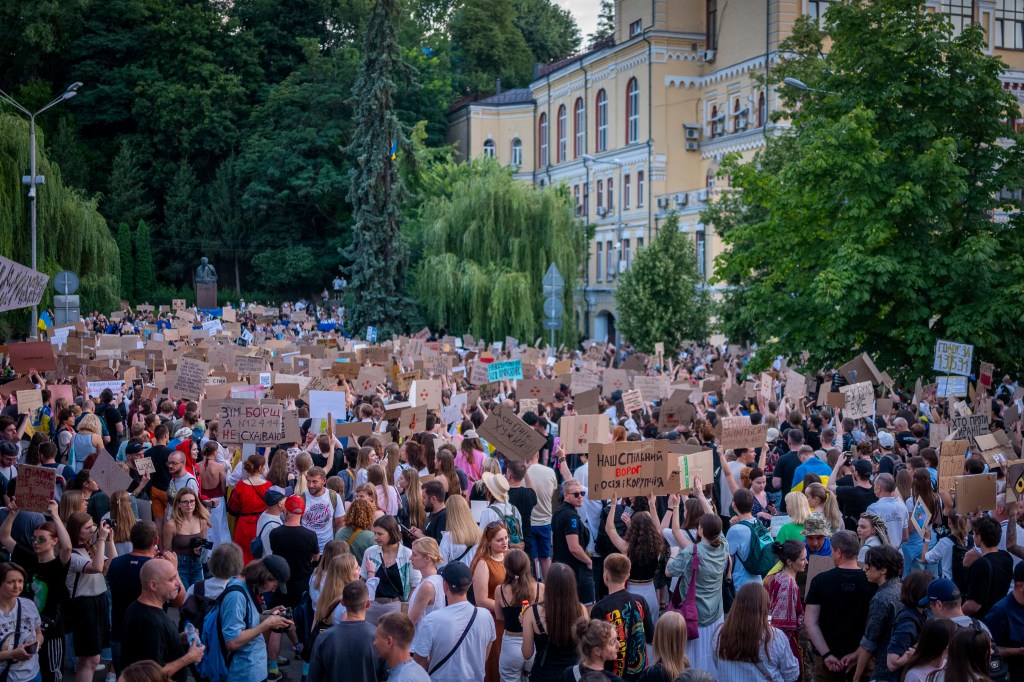
This sparked an even bigger protest. While approximately 2,000 people had protested before he signed the law, the next day about 9,000 Ukrainians came out to the rally.
“I’m against passing such laws without people’s consent. This isn’t what my husband is fighting for. … We’ve just been thrown back, I don’t know how many years,” said Emmanuel Alieva, 43, a Persian woman who quietly repeated the slogans “Shame” and “Cancel the law.”
“Two Maidans that I defended didn’t solve the issue [of fighting corruption]… As long as students are here, I’ll be here too,” said Volodymyr, a 71-year-old engineer, walking through the crowd with a flag on his shoulders.
The official position on why Kyiv suddenly decided to limit the independence of NABU and SAPO is that the government is seeking to purge Russian influence. The day before the law passed, Ukrainian security services conducted large-scale searches among detectives of NABUand supposedly found state traitors among them.
However, some have speculated that the law could also be connected to recent high-profile NABU cases that have affected Zelensky’s close circle, opposition MP Yaroslav Yurchshyn told The Dispatch. At the end of June, Deputy Prime Minister Oleksii Chernyshov, considered a close person to the president, was charged with abuse of office and bribery. NABU, according to reports by Ukrainska Pravda, was also preparing charges against Timur Mindich for embezzling state funds. He is a co-owner of production company Studio Kvartal 95, where Zelenskyy worked before becoming president. The Dispatch did not receive a response to its inquiry from the president’s office at the time of publication.
Currently, some deputies have completely gone silent, others have apologized for making a mistake, and still others are trying to explain their choice.
Opposition party European Solidarity lawmaker Nina Yuzhanina told The Dispatch that the independence of anti-corruption bodies had already been “destroyed” during Zelensky’s term. So, according to her, the bill doesn’t change anything.
“We don’t have a perfect government. We have a war first and foremost. No one here is trying to start a revolution. But this is a normal expression of civil society: when the authorities do something stupid, you have to speak out about it.”
Mykhailo Sunko, a 39-year-old protester
Some deputies who voted for the controversial bill justify their decision as a return to Ukraine’s constitutional norms. According to them, there should be one prosecutor general overseeing all law enforcement agencies.
“If you look at a typical European country, they have a prosecutor general who oversees everything, exercises supervision. They usually have [just] one or two law enforcement agencies,” said Bezuhla, the MP who came to the protest to explain why she supported the law.
Zelensky’s attempt at political rehabilitation.
“Of course, everyone has heard what people are saying these days – what they are saying on social media, to each other, on the streets. It’s not falling on deaf ears,” Zelensky said in reaction to the Ukrainian protests via Telegram.
Two days after the protests started, Zelensky submitted to the Verkhovna Rada a draft law that essentially restores the status quo for NABU and SAPO. It also introduces additional checks on employees of anti-corruption institutions, in particular, polygraph tests for staff with access to state secrets. Although the method is not scientifically proven, polygraph checks are common among civil servants in Ukraine.
An emergency session in the Verkhovna Rada, which had just gone on recess after voting for the controversial law, is scheduled for July 31. Among the Ukrainian lawmakers The Dispatch spoke to, there is still no clear guess of whether the draft law will be passed on the first try.
But Ukrainians have signaled that their country’s direction will not be determined within the walls of parliament or the president’s office.
“We don’t have a perfect government. We have a war first and foremost. No one here is trying to start a revolution. But this is a normal expression of civil society: when the authorities do something stupid, you have to speak out about it,” said 39-year-old IT specialist Mykhailo Sunko.
“We’re not afraid if they throw us into police vans, spray us with water, or gas us. We’re not afraid if they come at us with weapons. Russians run from the first police officer, we will stand. Even if they try to disperse us, there will only be more of us,” said 16-year-old protester Solomiia Kovach.
Protesters plan to gather all their signs and move from the checkpoints near the Presidential Office to the walls of the Verkhovna Rada, where the vote will take place. Yet among the protesters, a small sense of triumph is already being felt.
“When Zelensky signs the new law, then we can go home,” said 21-year-old Yaroslav Telenko, an international relations student, surrounded by friends holding cigarettes. “The fight isn’t over yet.”
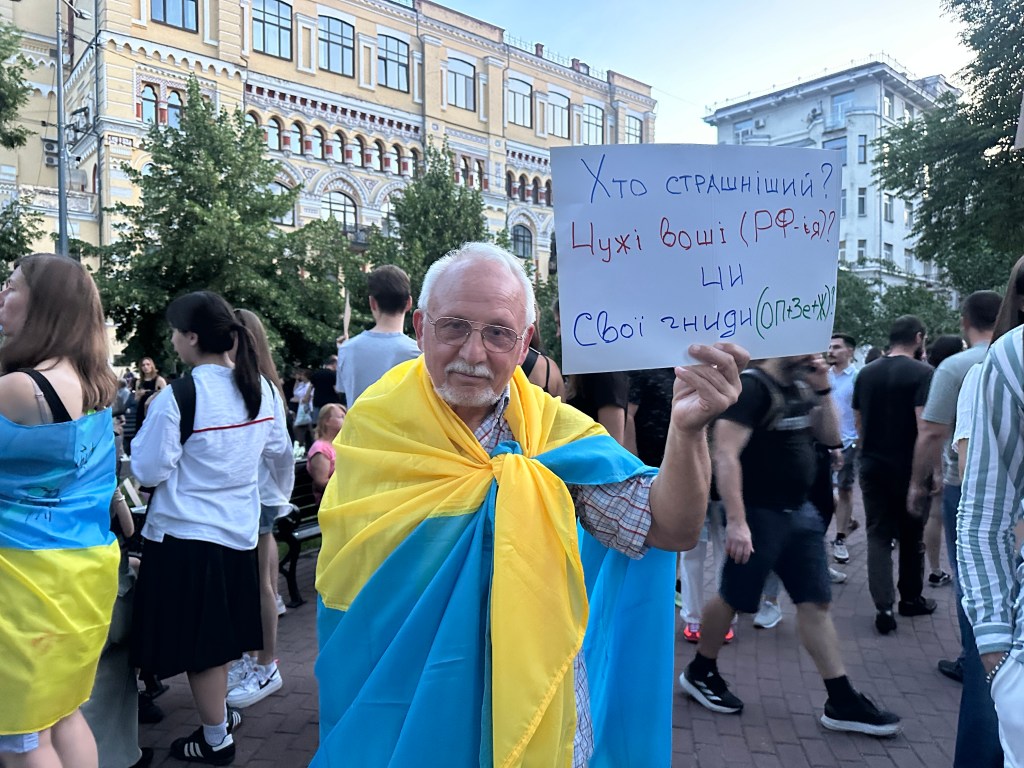

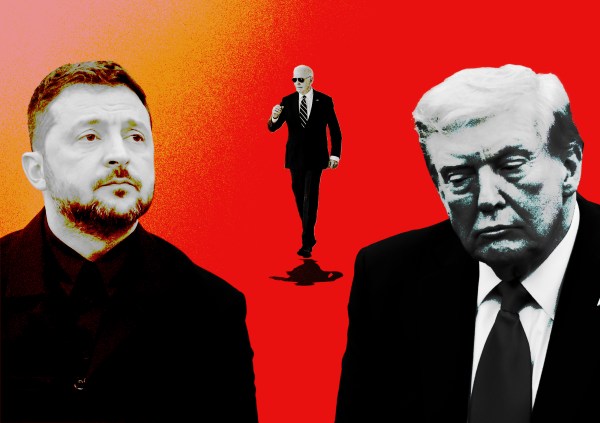
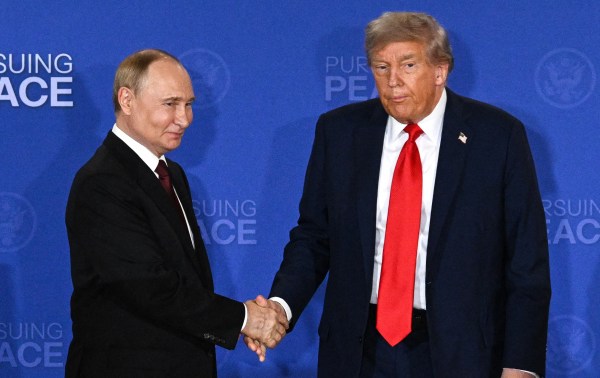
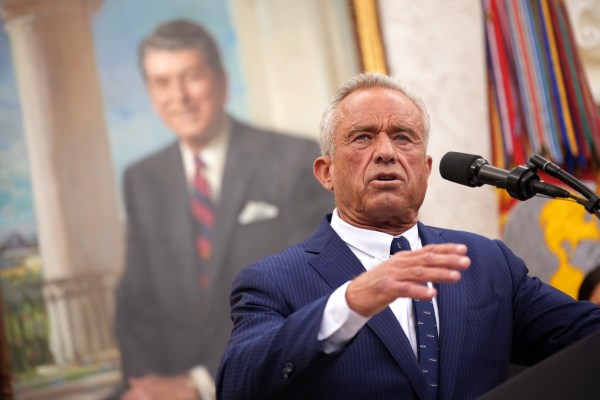

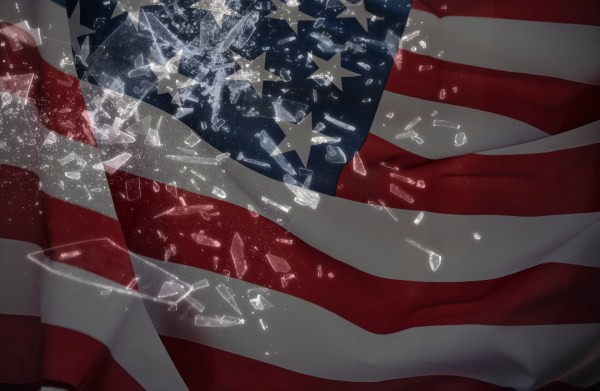

Please note that we at The Dispatch hold ourselves, our work, and our commenters to a higher standard than other places on the internet. We welcome comments that foster genuine debate or discussion—including comments critical of us or our work—but responses that include ad hominem attacks on fellow Dispatch members or are intended to stoke fear and anger may be moderated.
With your membership, you only have the ability to comment on The Morning Dispatch articles. Consider upgrading to join the conversation everywhere.